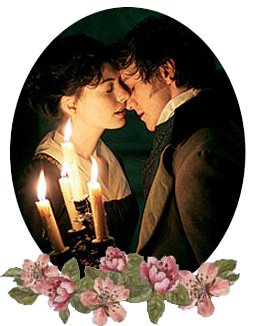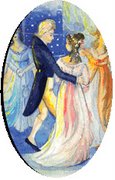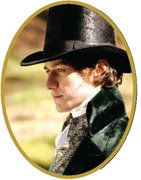Jane Austen Quote – Week 13
As Jane Austen’s most famous novel is Pride & Prejudice, I decided to pull out this quote to commemorate her passing away this 18 July. So it goes, as the studious Mary Bennet commented on Mr. Darcy:
“Vanity and pride are different things, though the words are often used synonimously. A person may be proud without being vain. Pride relates more to our opinion of ourselves, vanity to what we would have others think of us.”(PP, volume I, chapter 5).
Hmm… I’m ambivalent with Jane Austen’s definition of pride and vanity, because I have formed my own over the years (see below). I know, I know… it’s the first time I argue with what Jane wrote. It’s ironic that I should say so. But I think this blog is a free media where we can debate our dearest Jane Austen herself, not for debate sake, but for a healthy understanding.
And you know what? Many people will bash me for this; but I often think that Fitzwilliam Darcy often treaded on the definition of ‘vanity’ instead of ‘pride’ (well, not a secret here. My number one Austen hero is actually Mr. Knightley, not Mr. Darcy. Okay, sue me, but give me time to hide!)
I still recall what Darcy said to
Let’s see what Dictionary.com says about the two things:
Pride: a high or inordinate opinion of one's own dignity, importance, merit, or superiority, whether as cherished in the mind or as displayed in bearing, conduct, etc.
Vanity: excessive pride in one's appearance, qualities, abilities, achievements, etc.; character or quality of being vain; conceit: Failure to be elected was a great blow to his vanity.
Anyway, there is a very fine line between pride and vanity, so fine and thin that we usually fail to detect it. But it’s important to me to check whether at one point I’m experiencing pride or vanity. Hence, my indication is that:
1) If I’m ‘just’ proud of myself or someone or something, with a warm feeling inside because of what I/he/she/that something did/said, that’s pride. A warm feeling to acknowledge that it was truly something to be done/said, or that the state one’s in is truly something worth praising
2) But if I then compare such action/statement with someone else’s, saying that mine/his/hers is incomparably better than that someone else, then there’s red alert there. It’s possible that it’s not pride that I have. It’s vanity instead
3) Vanity can be shaken or blown by failure. Yet, it’s harder to destroy pride. Pride is the ability to walk with head straight despite our failure or defeat; for we know that we’ve done our best, and nothing is wasted
Hence, I’m sorry to say this, but to me Mr. Darcy’s accounts are often on the verge of vanity, hence he needed Elizabeth Bennet to balance him. Just like Emma Woodhouse. Her excessive pride of herself made her insensitive towards Miss Bates, hence George Knightley needed to rebuke her.
But Fanny Price would be someone I put directly into ‘pride’. She has her own pride that guides her through all the troubles, despite Mrs. Austen labeling her as ‘insipid’.
Of course, this is my 21st century definition of pride and vanity. Yours might be different. Thoughts?
Pic: A very nice water-colour picture of Darcy and Lizzy by Jane Odiwe













































8 comments:
I think it is just a matter of word definitions changing over time. Back in Austen's era, it quite possible that pride and vanity were defined differently than what they are now. We know that even during the last two centuries, commonplace words have changed meanings. (Of course, no words are coming to mind, but I know there are a few that don't mean the same thing today as they did 200-300 years ago.)
The thought did occur to me, and I think you're right. Thank you. In this case, I think the word 'pride' itself experiences transformation and hence received better nowadays than during Jane's time.
And yes, there are some other words that have different meanings over the centuries, so it might be the case too.
I would suggest that JA really was not seriously concerned with making a distinction between pride and vanity here. The fact that the quote comes from Mary Bennet, ‘who piqued herself upon the solidity of her reflections’, signals us not to read too deeply into the words; she may have been ‘studious’, but the running joke is that nothing profound or often even sensible results from her studies.
In commemoration of JA's death I've made yet another BJ- fanvid. I simply have too much time on my hands at the moment... Only one more week of vacation and then back to the grill... ;) watch the video here:
http://www.youtube.com/watch?v=wYrZkwnXAjQ
/hugs and kisses from Maria and Peanut
I agree with the first comment- there has definitely been a development and even change in the definition of these two words over the years.
Using the current definitions, however, I think that Mr Darcy made a transition from vanity to pride over the course of the novel and this was aided by the influence of Lizzy.
Thank you for your thoughts, Rachel and Bilbo. Bilbo, I understand that we can overlook this quote because it was said by Mary Bennet. And perhaps Jane Austen was just being witty when she wrote it. But this pride thing came up over and over again... hence it could also be her own interpretation of pride (and vanity) at that time.
I guess I have to restate here that I still love Jane Austen (why would I do all these if I don't?), but I want to have a healthy discussion about her writings.
So yes, I think there's a shift in word definition here, different from the ones Jane used 200 years ago.
And thank God for Lizzy Bennet! (wink!)
If you do a search of P&P for the word ‘vanity’ there are a lot that would have to be studied to discern what Miss Austen was about. But I will only quote one exchange between Darcy and Elizabeth:
"Perhaps that is not possible for any one. But it has been the study of my life to avoid those weaknesses which often expose a strong understanding to ridicule."
"Such as vanity and pride."
"Yes, vanity is a weakness indeed. But pride -- where there is a real superiority of mind, pride will be always under good regulation."
Elizabeth turned away to hide a smile.
P&P chapter 11
My point being this: Lest we forget the original titled for P&P, namely “First Impressions”, I will translate it as being a ‘first impression’ by Darcy and Elizabeth of each other. I will go further and say that Darcy represents ‘pride’ and Lizzy ‘prejudice’.
Taking into consideration Mary’s complete quote in context, I think Miss Austen is in agreement with you, Icha.
Well, that’s the best I can do for the moment, since my brain is a bit foggy, but I do detect that the subject could stand a lot more study and research than I have done.
Linda the Librarian
Thanks a lot Linda. Being an ESL (English as second language speaker), sometimes I struggle with word definitions, such as this one. I think what I can say now is that it is true that this very subject of pride vs vanity calls for a further study on its own. I understand that there are several papers out there made upon it, and thus the discussions continue.
Post a Comment